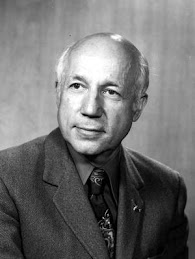 Title of Article: Getting to Know Nutraceuticals
Title of Article: Getting to Know NutraceuticalsAuthor: Thomas Hayden
Source: Scientific American Body
Date Published: December 2007
Date Obtained: December 1st 2008
Getting to Know Nutraceuticals pertains to the Metabolic Processes Unit of Study
Link to the Article: http://www.sciam.com/article.cfm?id=getting-to-know-nutraceut
Summary of the Article:
Getting to Know Nutraceuticals is an article scrutinizing the health claims of four major nutraceuticals; Omega 3`s, Lycopene, Glucosamine, and Tofu. Although all four of these dietary supplements are claimed to be beneficial, only two of them are free of negative side effects. Clinical trials surrounding Omega 3`s have found that this nutraceutical effectively prevents cardiac attacks and deaths, but the claim that it reduces chances of stroke cannot be proven, as results were varied. Glucosamine was also attributed with positive results, combating the pain and cartilage destruction associated with osteoarthritis, however, a placebo yielded strikingly similar results. The other two subjects in this report were found to have adverse effects hidden from the general public. Lycopene, which is supposed to lower risk of prostate cancer, was found to actually increase the risk of aggressive prostate cancer in certain test subjects. Tofu, often regarded as the king of nutraceuticals, was also found to contain certain soy compounds that increase the risk of breast cancer.
In reading this article, I learned that oftentimes, health claims are lacking the scientific evidence needed to back them up. Dietary supplements are a multi-billion dollar a year industry, and many of these products have little or no scientific evidence to prove their claims. It can be very confusing to choose which, if any, dietary supplement is right for you. I learned that before buying, one should always research the effects of the nutraceutical they are considering to use. If nutraceuticals are put through a rigorous screening process before they are approved, it will be a significant advancement in this field. FDA regulations are very loose surrounding what information is placed on a bottle of pills, and this creates a deep ethical and moral issue. This information is supposed to supply the customer with valid facts backed up by scientific evidence, but it is often no more than a farfetched hunch, created with one simple goal; to make money.







